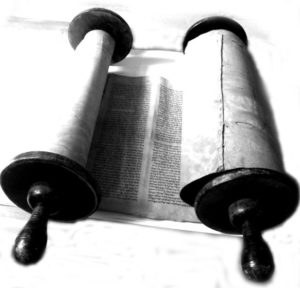October 2010
The Jews are known as the “People of the Book”. Jewish society has revolved around the Hebrew Bible for more than 2,000 years as demonstrated by the finding of nearly every book of the Old Testament in the Dead Sea Scrolls at Qumran. The Jewish people’s extensive relationship with Scripture stretches back another millennium or more beyond that, demonstrated by the discovery of the Priestly Benediction (Num 6:24-26) on two silver amulets buried in a Jerusalem tomb from seven hundred years before Jesus.

The oldest and most important part of the Jewish Scripture is its first five books, the Pentateuch. In Hebrew, these books, Genesis, Exodus, Leviticus, Numbers, and Deutero
nomy, are known as the Torah. Often, the Church has translated Torah as ‘the Law’ but this can be a misnomer leading to a skewed, antinomial perspective of God’s Word. The word Torah is better translated as ‘instruction’ or ‘teaching’, because it has the connotation of being a guide that leads one on the right path, or as ‘a teacher’ that trains a student on how to avoid the wrong way. Simply put, the Lord’s teachings lead to life. “For these commands are a lamp, this Torah is a light, and the corrections of discipline are the way to life (Prov 6:23).”
Every year, the Jewish people read through the Torah on a weekly schedule, starting with Genesis and ending with Deuteronomy. At the beginning of the Jewish New Year (during the early Fall season), that Bible reading schedule culminates with a celebration of the giving of God’s Word on the day of Simhat Torah, or “The Joy of the Torah.” In the synagogue, they will read both the end of Deuteronomy (33-34) and the beginning of Genesis (1:1-2:3) in recognition of the cyclical and timeless nature of the Torah. This Bible-reading party peaks with the congregation joyously dancing around while passing the Torah scroll among themselves, like fans cheering and rooting for their hero. “Blessed is the man…his delight is in the Torah of the LORD; he meditates day and night on His Torah (Ps 1:1-2).”
Contrary to some teaching, as followers of Jesus, the Old Testament is just as valuable and foundational for our faith as the New Testament. In fact, Jesus’ Bible was only the Old Testament; the New Testament did not aggregate until years after Jesus’ ministry on earth. Jesus emphasized the importance of these Hebrew scriptures when he appeared to the travelers on the road to Emmaus, teaching them everything that spoke about him—using the Torah of Moses, the Prophets, and the Psalms (Luke 24:44, 27).
As disciples of Jesus, let us be challenged to fall in love with God’s Word again. May we search it, contemplate it, and share it. For in God’s teachings we have life and joy; that is something to truly celebrate. “Do not let this Book of the Torah depart from your mouth; meditate on it day and night…do everything in it and then you will prosper (Josh 1:8).”
![]()
